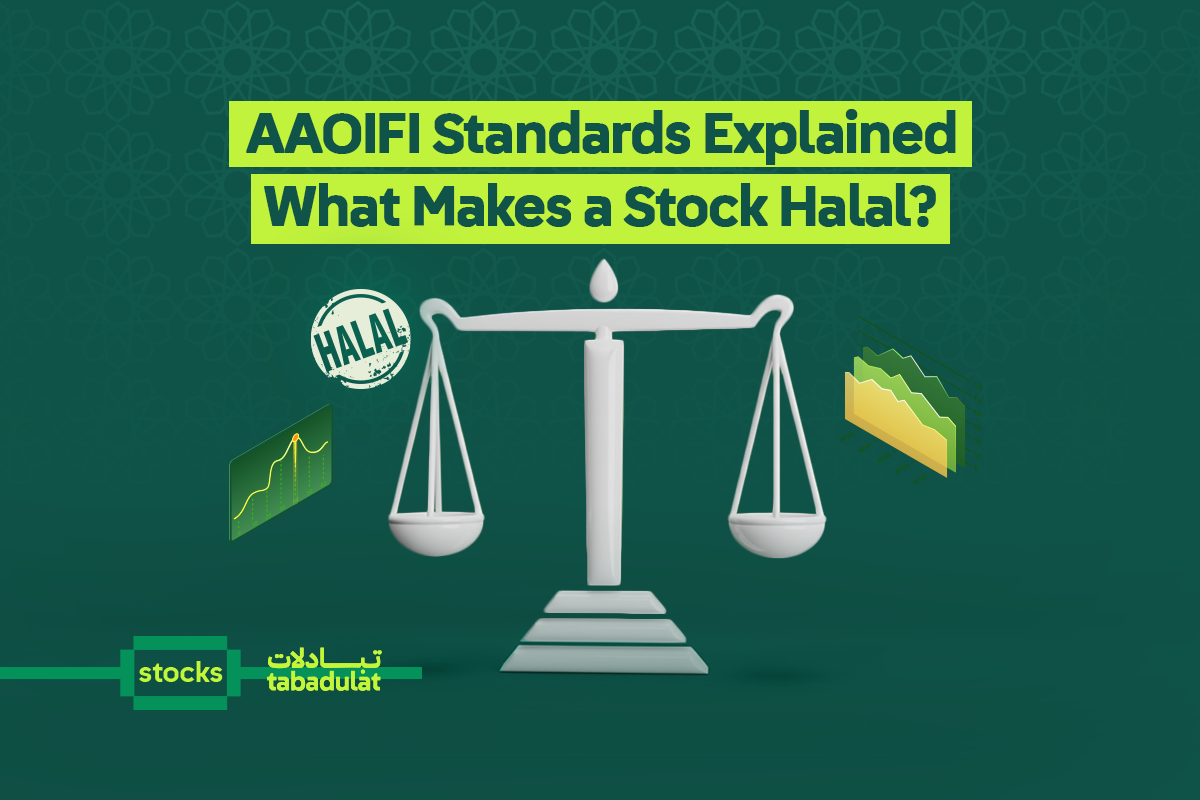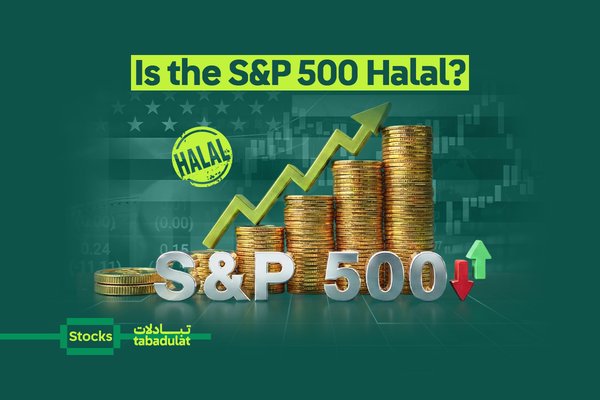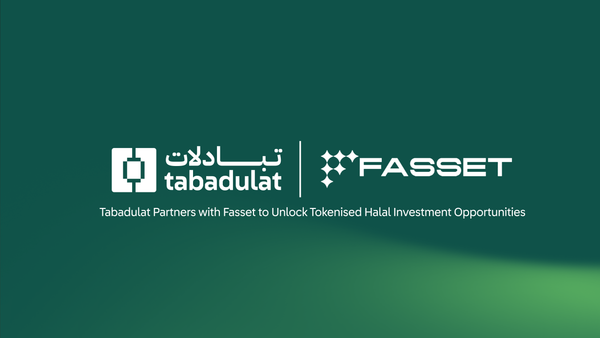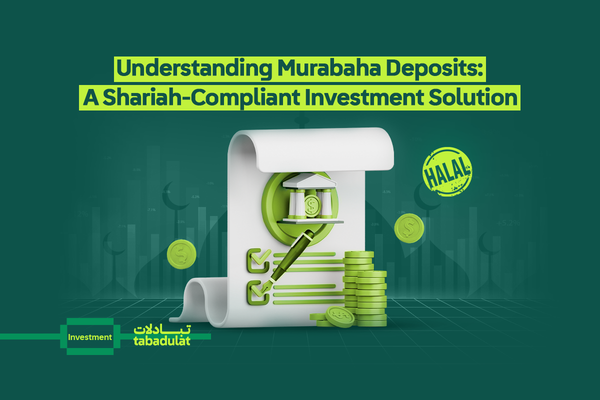AAOIFI Standards Explained: What Makes a Stock Halal?
Discover how AAOIFI standards help Muslim investors identify halal stocks through Shariah-compliant financial screening. Learn about business filters, debt ratios, and dividend purification — and how Tabadulat makes halal investing simple and transparent.

For Muslim investors looking to invest in the global stock market while remaining faithful to Islamic finance principles, one major question often arises: Is this stock halal?
It may sound simple, but the answer can be complex in practice. Most publicly listed companies operate in environments often involving Riba, high levels of debt, and engage in haram activities like alcohol and gambling.
That’s why halal investing requires more than just avoiding the obvious. A clear, structured method is needed to assess whether a company’s practices and financials align with Islamic finance principles.
For more information about Halal Investing and Halal stocks, read our guide.
Islamic finance principles are derived from the Qur’an, Sunnah, and Hadith tradition, but there are no globally accepted standards for halal investing. Each market has its own interpretation of Islamic jurisprudence (Fiqh) and, ultimately, Shariah compliance. So, what may be permissible in one market may be considered impermissible in another.
Over the past decades, different organisations have sought to harmonise Shariah standards.
The most prominent is Accounting and Auditing Organization of Islamic Financial Institutions (AAOIFI). Established in 1991 and headquartered in Bahrain, AAOIFI is the leading international standard-setting body for the global Islamic finance industry. AAOIFI standards are adopted in several jurisdictions, including Bahrain, the UAE, Pakistan, and Qatar.
AAOIFI’s scope includes accounting, governance, and auditing, but one of its most influential contributions has been Shariah standards for equity investment screening. This is covered in Shariah Standard 21 (Shares and Bonds). AAOIFI’s equity screening methodology is recognised across the Islamic finance industry from the GCC and Southeast Asia to parts of Europe, Africa, and North America.
For Muslim investors who are not scholars or financial experts, AAOIFI provides a reliable benchmark. It enables confident decision-making in line with Islamic ethics. Many major Islamic indices, such as the S&P and Dow Jones Islamic Market Indices, use AAOIFI-aligned criteria, making it easier to identify halal stocks worldwide.
What Does AAOIFI Say About Halal Stocks?
AAOIFI’s Shariah Standard No. 21 offers a framework to determine whether a Muslim investor should buy and sell a company’s shares in a halal manner. The standard focuses on two critical dimensions:
- The Nature of the Company’s Business - "Qualitative Screening"
- The Company’s Financial Ratios - "Quantitative Screening"
|
COMPANY ACTIVITIES
QUALITATIVE
|
COMPANY KEY FINANCIAL RATIOS
QUANTITATIVE
|
|---|---|
| Haram business activities (pork, alcohol, gambling, weapons) | Interest-bearing debt should not exceed 30% of market capitalisation |
| Haram income <5% of total revenue | |
| Interest-earning (non-compliant) investments should not exceed 30% of market capitalisation |
Company Activities
The first step is to look at what the company actually does. If its core activities are involved in haram activities like:
- Conventional banking or insurance
- Alcohol production or sales
- Gambling or casinos
- Pork-related products
- Weapons manufacturing (in certain contexts)
- Adult entertainment
Companies involved in any of these sectors are considered haram and must be excluded outright. However, companies in otherwise permissible sectors may still generate incidental income from haram activities (like earning interest on deposits and renting space to a non-compliant business). In such cases, AAOIFI applies a 5% revenue threshold:
A company is only considered halal if income from prohibited sources does not exceed 5% of its total revenue. This ensures that investors are not profiting materially from haram activities, even if they are not part of the company’s core operations.
Financial Ratio Screening (Quantitative Criteria)
Ok, so even if a company’s business model appears halal, its financial structure might not be. Many companies rely on Interest-bearing debt, hold Interest-earning securities, or have significant non-compliant income sources.
To address this, AAOIFI applies three key financial ratios:
- Interest-bearing debt should not exceed 30% of market capitalisation (This limits exposure to Riba-based financing.)
- Interest-earning (non-compliant) investments should not exceed 30% of market capitalisation. (For example, investments in conventional bonds or Riba-based instruments.)
- Non-permissible income should not exceed 5% of total revenue.
(For example, conventional banking, gold & silver hedging, mortgage & lease, interest income, music, gambling and tobacco).
If any of these thresholds are breached, the company fails the Shariah screen — regardless of whether its core business is permissible. Importantly, these ratios should be calculated using the latest audited financial statements and monitored regularly.
As a result, a stock that may be halal today may become non-compliant next quarter due to a change in its debt levels or income sources.
Many platforms offer a halal stock screener, but these are sometimes an add-on or don’t automate AAOIFI-based screening, which has become an essential tool for Muslim investors today. Tabadulat offers a comprehensive halal stock screener at no charge.
Read our guide about why a halal stock screener is important.
Challenges and Considerations
But there’s a problem. While AAOIFI standards provide a framework, investors must recognise that:
- Data limitations - Not all companies disclose detailed financial breakdowns, especially on non-compliant income.
- Timeliness matters - Financial ratios change over time, and continuous monitoring is essential.
- Purification is often overlooked - Many retail investors are unaware they need to purify dividends or how to do so.
Dividend Purification
Even when investing in Shariah-compliant companies, investors may receive dividends that include a small proportion of impure income. For example, a company might earn minor Riba income that gets distributed as part of the dividend.
AAOIFI’s methodology requires purifying such impure income by donating the non-halal portion to charity. Investors are left responsible for calculating the amount based on available financial disclosures and purifying their earnings accordingly. This can be confusing and time-consuming.
Whilst a company may pass business and financial screenings, investors are encouraged to purify their returns and donate their impure income to charity. This process is called purification or Tazkiyah.
How Tabadulat Can Help
At Tabadulat, Shariah compliance is not an afterthought — it’s our foundation. We are the world’s first truly global Shariah-compliant brokerage, built for Muslims seeking halal investing with peace of mind.
We strictly adhere to AAOIFI standards, which means every company we will list, feature we will launch, and policy we will implement is centred around Islamic values. We will have an independent Shariah Supervisory Board, which includes world's most respected scholars. They will oversee our activities multiple times a year and issue a Fatwa on the Shariah compliance of our platform.
We will adopt cutting-edge real-time technology to analyse 40,000 stocks and ETFs globally daily. By law, our methodology requires the approval of Islamic finance scholars.
We believe Muslims shouldn’t have to pay extra to know if their portfolio is halal. That’s why we will provide a comprehensive Shariah breakdown of their portfolio and prospective investments to every user at no extra cost.
What happens when your portfolio becomes non-compliant? We’ll notify you immediately to take action. This means you can focus on investing with peace of mind and without compromise.
We've also created a built-in Zakat calculator to purify your income and meet your Zakat obligations in one platform! This means your profits are not only financially halal but also spiritually purified.
At Tabadulat, we’re here to support you every step of your journey — so you can invest 100% halal and with 0% compromise.
1. What are AAOIFI standards in halal investing?
AAOIFI standards are internationally recognised guidelines set by the Accounting and Auditing Organization for Islamic Financial Institutions to ensure investments comply with Islamic principles. They include rules on avoiding Riba (interest), haram industries, and excessive debt, helping Muslims identify truly halal stocks.
2. How do I know if a stock is halal or haram?
To determine if a stock is halal, you must screen the company’s business activities and financial ratios. If it earns income from haram sectors (e.g., alcohol, gambling, conventional banking) or exceeds certain debt or Riba income thresholds, it may not be Shariah-compliant. Platforms like Tabadulat apply AAOIFI stock screening to simplify this process.
3. What financial ratios make a stock Shariah-compliant?
AAOIFI considers three main financial criteria:
- Riba-bearing debt must be less than 30% of market capitalisation
- Non-permissible income must be less than 5% of total revenue
- Riba-earning investments must be less than 30% of market capitalisation
If a company breaches any of these, its stock becomes non-compliant under Islamic finance rules.
4. What is dividend purification in Islamic investing?
Dividend purification is the process of cleansing impure (non-halal) income received from otherwise halal investments. According to AAOIFI, Muslim investors must calculate and donate the portion of their dividend income that stems from haram sources to charity to maintain spiritual purity in wealth.
5. Why should Muslim investors use a halal stock screener?
A halal stock screener helps Muslim investors find Shariah-compliant stocks quickly and accurately using Islamic finance rules. Tabadulat’s halal stock screener is built on AAOIFI criteria and provides real-time monitoring, so your portfolio remains halal without manual checks or guesswork.





